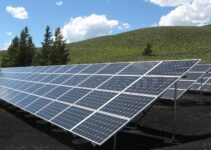Do Solar Panels Increase Home Insurance? The answer may surprise you. Many homeowners are considering installing solar panels on their roofs as a way to save money on energy costs and reduce their carbon footprint. However, one question that often comes up is whether or not solar panels can affect home insurance rates.
In this article, we will explore the relationship between solar panels and home insurance, factors that determine if solar panels increase home insurance, the benefits of solar panels for homeowners, tips for lowering home insurance costs with solar panels, common misconceptions about solar panels and home insurance, and how to properly insure your home with solar panels.
Understanding the Relationship Between Solar Panels and Home Insurance
Solar panels are a valuable addition to any home. They can generate clean and renewable energy, reduce electricity bills, and even earn homeowners money through net metering programs. However, when it comes to home insurance, the presence of solar panels can impact the rates and coverage.
Insurance companies assess the risk associated with insuring a home with solar panels. Some factors that may affect insurance rates include the age and condition of the solar panels, the type of installation, and the location of the home. While it is not always the case, in some instances, homeowners may experience an increase in their insurance premiums.
Factors That Determine if Solar Panels Increase Home Insurance
Several factors come into play when determining whether solar panels increase home insurance rates. These factors include:
- The value of the solar panels: The cost of installing solar panels can vary significantly. More expensive systems may lead to higher insurance premiums.
- The age and condition of the solar panels: Older or poorly maintained solar panels may pose a higher risk for insurance companies, resulting in increased rates.
- The type of installation: Rooftop installations are the most common, but ground-mounted systems are also an option. Insurance companies may view ground-mounted installations as riskier and charge higher premiums.
- The location of the home: Different regions have varying levels of risk for natural disasters or extreme weather events. Homes in areas prone to hurricanes, earthquakes, or wildfires may face higher insurance costs.
- The amount of coverage needed: Homeowners may need to increase their coverage to account for the added value of the solar panels.
Exploring the Benefits of Solar Panels for Homeowners
Despite the potential increase in insurance costs, solar panels offer numerous benefits for homeowners:
- Lower electricity bills: Solar panels generate electricity, reducing or even eliminating the need to rely on traditional power grids.
- Financial incentives: Many governments and utility companies offer incentives, such as tax credits or rebates, to encourage homeowners to install solar panels.
- Environmental impact: Solar energy is clean and renewable, reducing greenhouse gas emissions and dependence on fossil fuels.
- Increased home value: Homes equipped with solar panels tend to have higher resale values, making them attractive to potential buyers.
- Energy independence: Generating electricity from solar panels provides homeowners with greater control over their energy usage and costs.
Tips for Lowering Home Insurance Costs with Solar Panels
While solar panels may increase home insurance rates, there are several strategies homeowners can employ to offset these costs:
- Shop around for insurance: Different insurance companies may have varying policies and rates when it comes to insuring homes with solar panels. Take the time to compare quotes and coverage options.
- Choose a reputable solar installer: Proper installation and maintenance of solar panels can minimize the risk of accidents or damage, potentially leading to lower insurance premiums.
- Upgrade your home’s safety features: Installing security systems, fire alarms, or impact-resistant roofing materials can reduce the risk of theft, fire, or weather-related damage, potentially lowering insurance costs.
- Consider increasing your deductible: Opting for a higher deductible can help lower monthly premiums. However, homeowners should ensure they can afford to pay the deductible in case of an insurance claim.
- Bundle your policies: Many insurance companies offer discounts when homeowners bundle their home and auto insurance policies. Inquire about potential savings.
Common Misconceptions About Solar Panels and Home Insurance
There are several common misconceptions regarding solar panels and home insurance:
- Misconception 1: Solar panels are not covered by home insurance. In reality, most standard home insurance policies provide coverage for solar panels.
- Misconception 2: Solar panels always increase home insurance rates. While it is possible for insurance premiums to rise, it is not always the case.
- Misconception 3: Solar panels can void home insurance. As long as homeowners inform their insurance provider about the presence of solar panels and update their coverage accordingly, their insurance remains valid.
- Misconception 4: Solar panels are not worth the insurance cost increase. The financial and environmental benefits of solar panels often outweigh any potential increase in insurance rates.
How to Properly Insure Your Home with Solar Panels
Properly insuring your home with solar panels involves taking the following steps:
- Inform your insurance provider: As soon as you install solar panels, inform your insurance company about the addition. This ensures that your coverage accurately reflects the increased value of your home.
- Review your policy: Understand the coverage provided by your insurance policy and determine if any adjustments are necessary.
- Consider additional coverage options: Depending on your circumstances, you may want to explore additional coverage options, such as equipment breakdown coverage or liability insurance specific to your solar panels.
- Document your solar panel system: Keep records of the installation process, equipment warranties, and maintenance history. These documents can be helpful in case of an insurance claim.
Frequently Asked Questions
Q: Will installing solar panels void my home insurance?
A: No, installing solar panels does not void home insurance. However, homeowners should inform their insurance provider about the addition to ensure proper coverage.
Q: Do all insurance companies cover solar panels?
A: Most standard home insurance policies provide coverage for solar panels. However, it is important to review your policy and consult with your insurance provider to confirm coverage details.
Q: Will my insurance rates automatically increase if I install solar panels?
A: Not necessarily. While insurance premiums may increase, it is not always the case. Factors such as the value, age, and condition of the solar panels, as well as the location of the home, can influence insurance rates.
Q: Can I save money on home insurance by installing solar panels?
A: While solar panels may increase home insurance rates in some cases, homeowners can explore strategies to offset these costs, such as shopping around for insurance, upgrading home safety features, or bundling policies.
Q: Do solar panels add value to my home?
A: Yes, solar panels can increase the value of a home. Homes equipped with solar panels are often more attractive to buyers due to the potential energy savings and environmental benefits they offer.
Expert Advice
When it comes to the question, “Do solar panels increase home insurance?” the answer is not always straightforward. The impact of solar panels on home insurance rates can vary depending on several factors, including the value, age, and condition of the panels, as well as the location of the home. It is crucial for homeowners to inform their insurance providers about the installation of solar panels and review their coverage to ensure adequate protection.
Additionally, homeowners should explore ways to offset potential increases in insurance costs, such as shopping around for insurance, upgrading home safety features, and considering higher deductibles. By carefully navigating the relationship between solar panels and home insurance, homeowners can enjoy the benefits of clean energy while protecting their investment.






